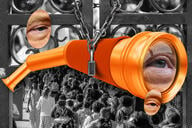You have /5 articles left.
Sign up for a free account or log in.
The Common Application has rejected a proposal that it add optional questions on sexual orientation and gender identity. The board of the organization issued a statement suggesting that colleges have other ways to indicate support for applicants who are gay or who don't identify with traditional gender categories, and that adding the questions could pose problems.
Advocates for such students have been pushing the Common Application to add the questions, with the hope that doing so would send a powerful message to the students who apply to the 414 colleges that are members, a group that includes many of the most prestigious colleges in the United States.
Advocates said that just as colleges use information that students volunteer on their ethnicity, academic interests, socioeconomic background and many other factors, they should invite students to consider sharing information about sexual orientation and gender identity, so that colleges can offer relevant information and so they see the growing number of such applicants who want to attend supportive institutions.
The statement adopted by the board of the Common Application left open the possibility that the questions might yet be added at some point in the future, calling for an additional review "later this decade" that would evaluate, among other things, "evolving cultural norms."
The board document cites several reasons for rejecting the new optional questions. "Many admission officers and secondary school counselors expressed concern regarding how this question might be perceived by students, even though it would be optional. One common worry was that any potential benefits to adding the question would be outweighed by the anxiety and uncertainty students may experience when deciding if and how they should answer it," says the statement.
Further, the Common Application notes that it has just added -- under a menu of activities that students could indicate they participated in while in high school -- a category of "LGBT," so students can indicate their activism on behalf of gay rights. Such activism is growing in high schools, frequently through gay-straight alliances, and the Common Application statement acknowledges this.
"While advocacy falls short of confirming an applicant’s sexual orientation, it will help members identify applicants who may benefit from targeted outreach efforts. Applicants also have the opportunity to report personal information of any kind in their application essays and/or the Additional Information section," the statement says.
On the issue of gender identity, the rejected proposal would have continued to ask students to report their legally defined gender, but would have also given applicants the chance to indicate if other terms more accurately described them, so that students who identify as a different gender than is on their birth certificates, or who identify as transgender or without a traditional gender, could indicate as much.
The Common Application statement says that the addition of other categories would "disrupt members’ abilities to comply with federal reporting guidelines" and that very few colleges have sought the information. However, the statement says that the organization will add a new question box (a feature throughout the application that provides additional information for applicants on questions they might have) that would specifically tell applicants that they are welcome to provide additional information elsewhere about their sex or gender identity, beyond what is collected for federal reporting requirement.
To arrive at its decision, the Common Application board hired an outside consultant to review applications of colleges inside and outside the United States, held many meetings, and surveyed its membership (and received a 75 percent response rate).
Shane L. Windmeyer, the founder of Campus Pride, a national group that works on behalf of gay students and sponsors college fairs at which gay students can meet college representatives, criticized both the process and the outcome of the Common Application's consideration of the issue. Campus Pride formally requested the changes and was the most vocal proponent of them.
"The Common Application is acting like a parent of the 1950s," he said. Windmeyer stressed that the proposed new questions were optional, so any applicant made uncomfortable could simply avoid them. And he also said that it would be possible -- by asking a second question on gender after one about birth certificates -- for colleges to meet reporting requirements while still reaching out to students with a range of gender identities.
Windmeyer said that at the college fairs his group organizes, there are many high school students who are comfortable with their identities, who have faced harassment in high school, and who want to be certain that they are looking at colleges that will be welcoming. "This is about allowing students to be who they are as they apply to college, and for them to see that they can find a safe place," he said.
By asking students about race and ethnicity and many other topics, but not asking about sexual orientation and gender identity, college applications send a message, he said. "They are out of touch with the needs and concerns of LGBT students," he said.
Windmeyer noted that the board's statement about revisiting the issue suggested an awareness that asking such questions will some day not be seen as a big deal. "It's just a matter of time," he said.




